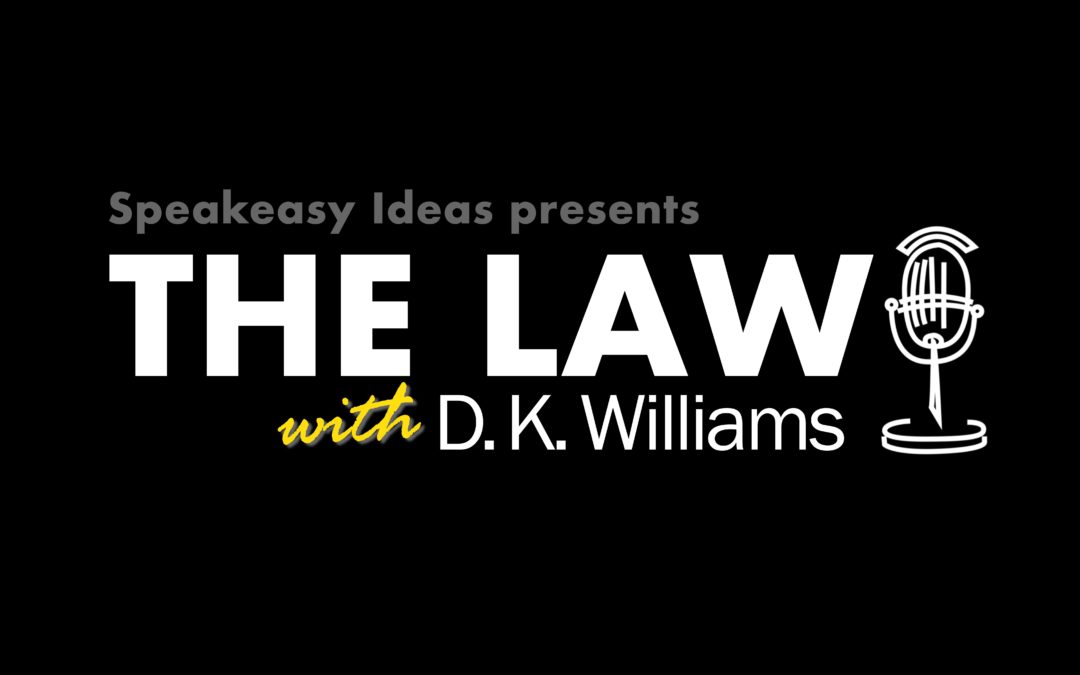
by D.K. Williams | Jan 17, 2020 | The Law with D.K. Williams
Podcast: Play in new window | Download
Subscribe: Apple Podcasts |
United States Supreme Court Associate Justice Neil Gorsuch’s book, A Republic, If You Can Keep It, attempts to explain to non-lawyers the importance of the constitutional framework of our federal government. And he succeeds. He discusses how the separation of powers, when followed, protects our rights and liberties. He clarifies the job of federal judges and, more importantly, explains what judges are not supposed to do. We discuss all of that, and more.

by D.K. Williams | Jan 9, 2020 | The Law with D.K. Williams
Podcast: Play in new window | Download
Subscribe: Apple Podcasts |
Just last month, the Fifth Circuit upheld a lower court ruling that the individual mandate portion of the Affordable Care Act (Obamacare) is no longer constitutional. Despite wailing from some who support the ACA, the 5th Circuit is correct. The Supreme Court, in 2012, upheld the mandate on the sole basis of Congress’s power to tax. That tax was lowered to $0.00 in 2017. Since there is no longer a tax, there is no longer any constitutional authority for the mandate. We discuss what it all means.

by D.K. Williams | Jan 2, 2020 | The Law with D.K. Williams
Podcast: Play in new window | Download
Subscribe: Apple Podcasts |
The recent movie directed by Clint Eastwood, Richard Jewell, dramatizes the actual events surrounding a pipe bomb explosion during the 1996 Atlanta Olympics. When I first saw the trailer for the movie, I was yelling at the screen “DON’T TALK TO THE POLICE, RICHARD! SHUT UP!” Fortunately, my yelling was internal. In this podcast, I discuss the constitutional issues raised by the movie and the actual events it portrays, including the Fifth Amendment protection of the right to remain silent and the First Amendment application to freedom of the press and defamation.

by D.K. Williams | Dec 19, 2019 | The Law with D.K. Williams
Podcast: Play in new window | Download
Subscribe: Apple Podcasts |
In this 5-4, 1997 decision, the U.S. Supreme Court declared certain key provisions of the Brady Handgun Violence Prevention Act unconstitutional. While the Brady Act was an attempt at federal gun control, this is not a Second Amendment case. It is a Tenth Amendment case. Justice Scalia, writing for the majority, held that Congress is constitutionally prohibited from infringing on the sovereignty of states by commanding local law enforcement agents to participate in a federal regulatory scheme, subject to federal sanction if they do not.

by D.K. Williams | Dec 12, 2019 | The Law with D.K. Williams
Podcast: Play in new window | Download
Subscribe: Apple Podcasts |
he Township of Scott, Pennsylvania, ordered Mary Jane Knick to allow the public on her property because it contained a private cemetery. She opposed that directive. This Supreme Court case from earlier this year deals with two important topics: The Fifth Amendment Takings Clause and stare decisis. The 5-4 majority in this case allowed Knick to bring a federal lawsuit against her local government for depriving her of her rights as an owner of private land without first exhausting all potential state remedies. In so doing, the Court overturned a 1985 ruling that held to the contrary.

by D.K. Williams | Dec 9, 2019 | The Law with D.K. Williams
Podcast: Play in new window | Download
Subscribe: Apple Podcasts |
This is a special edition of The Law. We discussed the 10th Circuit opinion Baca v. Colorado (2019) back in episode 48 of The Law. Micheal Baca (yes, he spells his first name Micheal, not Michael) is the plaintiff in that case, and he graciously agreed to talk to me about how he became a Presidential Elector, why he did not vote for Hillary Clinton as state law required, and what happened when he refused to rubber stamp a ballot with only one name on it.

